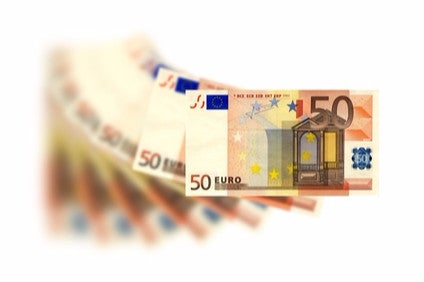
Five suppliers, namely Tokai Rika, Takata, Autoliv, Toyoda Gosei and Marutaka, have been handed fines totalling EUR34m (US$40m) for breaching European Union (EU) antitrust rules.
The companies took part in one or more of four cartels for the supply of car seatbelts, airbags and steering wheels to Japanese car manufacturers in the European Economic Area.

Discover B2B Marketing That Performs
Combine business intelligence and editorial excellence to reach engaged professionals across 36 leading media platforms.
All five suppliers acknowledged their involvement in the cartels and agreed to settle the case, while Takata was not fined for three of the cartels as it revealed their existence to the Commission.
Tokai Rika was not fined for one of the cartels as it revealed its existence to the Commission.
“Seatbelts and airbags protect lives every day and are essential in all cars in the EU,” said competition policy Commissioner, Margrethe Vestager. “The five suppliers fined today colluded to maximise their profits from the sale of these components.
“This may have raised the costs of these car parts for a number of manufacturers selling cars in Europe, potentially affecting consumers.
“We do not accept cartels that affect the European consumers, even if the cartel is organised outside Europe.”
The five car component suppliers addressed in this decision coordinated prices or markets and exchanged sensitive information for the supply of seatbelts, airbags and steering wheels to Japanese car manufacturers, Toyota, Suzuki and Honda in the EEA.
The coordination to form and run the cartel took place outside the EEA, notably in Japan, mainly through meetings at the suppliers’ business premises but also in restaurants and hotels, as well as through e-mail exchanges.
Collusion between the car safety equipment suppliers generally intensified when specific requests for quotations were launched by the car manufacturers concerned.
The cartel may have had a significant effect on European customers, since around one out of every eleven cars sold in Europe is produced by a Japanese company. Furthermore, all the Japanese car companies affected by the cartel have manufacturing plants in the EEA.
The decision is the 25th settlement since the introduction of this procedure for cartels in 2008.
The Commission’s investigation revealed the existence of four separate infringements.
Fines:
In setting the level of fines, the Commission took into account, in particular, the sales value in the EEA achieved by the cartel participants for the products in question, the serious nature of the infringement, its geographic scope and its duration. With respect to Marutaka, the Commission took also into account its role as the facilitator of one of the cartels.
Under the Commission’s 2006 Leniency Notice:
- Takata received full immunity for revealing three of the cartels (thereby avoiding an aggregate fine of ca. EUR74m).
- Tokai Rika received full immunity for revealing one of the cartels (thereby avoiding an aggregate fine of ca. EUR15m).
- Tokai Rika, Takata, Autoliv and Toyoda Gosei benefited from reductions of their fines for their cooperation with the Commission investigation. The reductions reflect the timing of their cooperation and the extent to which the evidence they provided helped the Commission to prove the existence of the cartels in which they were involved.
- In addition, under the Commission’s 2008 Settlement Notice, the Commission applied a reduction of 10% to the fines imposed on the companies in view of their acknowledgment of the participation in the cartel and of the liability in this respect.






